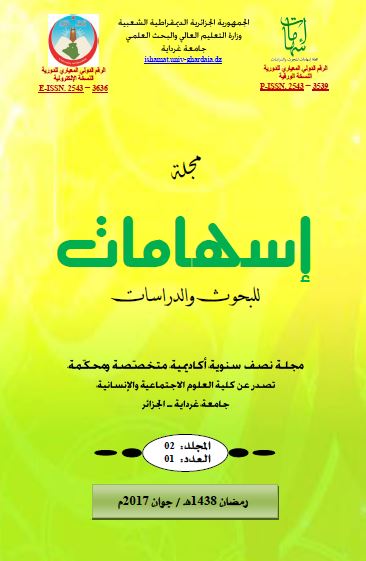الدين أساساً للهوية الاجتماعية في الأدبيات الما بعد كولونيالية "علي شريعتي نموذجا"
Keywords:
مابعد الكولونيالية، الهوية، الدين، التشيع، علي شريعتي. Postcolonial, Identity, Ali ShariatiAbstract
الملخص:
تهدف الدراسة الحالية لاستعراض نموذج عن الكتابات المابعد كولونيالية التي عنيت بمسألة الهوية، من خلال تناول أفكار عالم الاجتماع الإيراني علي شريعتي، الذي نهل من المنهجية الماركسية والفكر الإسلامي عامة والمذهب الشيعي خاصة، من أجل نحت هوية اجتماعية إيرانية فريدة من نوعها. لكن ينبغي التنبه إلى أن شريعتي لم يتبنى الفلسفة المادية التي تقوم عليها الماركسية، بل اكتفى بالاعتماد على منهجها التحليلي، والذي يرى في تاريخ المجتمعات الإنسانية، حلقات من الصراع الطبقي.
الكلمات المفتاحية: مابعد الكولونيالية، الهوية، الدين، التشيع، علي شريعتي.
Abstract:
Postcolonial Identity is a central theme to postcolonial literature since it is the result of the process of colonialism; a thing that justifies all the debates and controversies that underlie this notion. This identity is forged by the colonial history and the postcolonial predicament a thing that led to the emergence of cultural and spatial elements that affected the postcolonial identity and postcolonial writers.
Ali Shariati considers that there is a direct link between capitalism’s tendency toward general exploitation, on the one hand, and the tendency toward the loss of social identity and spirituality on the other.
Key words: Postcolonial, Identity, Ali Shariati

